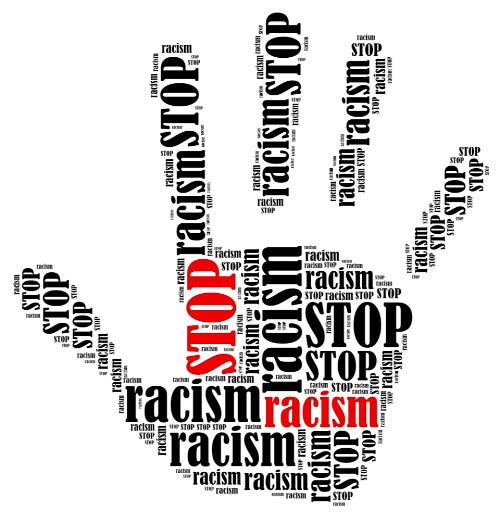When Words Are Not Enough: How the Social Sector Can Take Action Against Racism

As #BlackOutTuesday came and went, I saw post after post from companies, individuals and celebrities with words of support for the Black Lives Matter movement. But, something was missing from these well-meaning, but passive sentiments. Then, I saw a post by Anne Wojcicki, CEO and co-founder of 23andMe, that started in the same way as so many other posts: “23andMe stands in solidarity with you.” But, it ended with real accountability: “I am ashamed to say I do not have a single black employee who is at a Director level or above … I’m holding myself accountable.” This inspired me to look for others who are creating accountability for the social sector as we take our next steps toward racial equity and social justice. Here are my thoughts as well as real examples for committing to social change:
Educate board and staff: We read a lovely story about Doug Parker, CEO of American Airlines, who was “caught on a Southwest flight” last Friday, reading White Fragility: Why It’s So Hard for White People to Talk About Racism. He was asked about it by an African-American flight attendant, JacqueRae Hill, after her safety checks. They ended up having a meaningful conversation about the book and recent events. After reflecting on the experience, she wrote that because of Parker’s position of influence, “he does not have to educate himself. And the fact that he is, I just think that speaks volumes as to the work we all have to do in trying to bring ourselves together.” We encourage all boards and leadership teams to conduct joint professional development — now is a great time to (further) educate ourselves by reading one of the many powerful books on racism or explore these anti-racist resources.
Talk about it and listen: While it might be uncomfortable to speak about race, it is a necessary part of the process. The National Museum of African American History and Culture just recently launched a web portal filled with free educational materials, including online activities and multimedia resources. We encourage all organizations to add a discussion on race to the agenda of their next employee and board gathering and openly talk about issues affecting their community. As important as it is to talk honestly about these issues, it is equally important to listen carefully to the perspectives and experiences of people of color.
Advance equity as a core value and measure it: We have championed core values for organizations for some time. In January 2019, we encouraged all nonprofits to adopt equity as a core value. We also encouraged the adoption of equity statements. Based on recent surveys, only 52% of nonprofits have a formal statement on equity. But, these statements alone are not enough — goals need to be set and measured. I was pleased to see my former employer, the American Heart Association, publish an annual report card on its progress toward equity. We encourage all nonprofits to measure equity through concrete metrics in their strategic planning efforts (e.g., % diversity in applicants vs. hires, % of diverse employees, % of diverse suppliers).

Promote diversity in leadership: Like the American Heart Association, organizations should set personnel and volunteer goals for diversity and inclusion. Research shows that the more diverse your staff, the better the decisions. We also have to acknowledge and be accountable to the fact that nonprofits and foundations, while having equity policies, are woefully behind. In fact, the Center for Effective Philanthropy conducted research showing that while 55 percent of CEOs think diversity is very important, only 23% believe their leadership team reflects the population that they serve. We encourage every board and leadership team to have a candid conversation about diversity and inclusivity and to include these goals in their strategic plan.
Recognize and address racial disparities among nonprofits: We now have research (seeBuilding Movement Project’s Race to Lead report) to suggest that even when nonprofits are led by leaders of color, they are likely to have smaller budgets and fewer connections to the funding community. So, while it is important to have diverse leaders at nonprofits, we also have to recognize that people of color in leadership positions have additional barriers and pressures compared to their peers. We encourage organizations, such as United Way, academic institutions and funder collaboratives, to not only support goals for enhanced diversity in the social sector, but also to build capacity and support for diverse nonprofit executives at every stage of their career. For additional thoughts on what funders can do, we suggest reading “Overcoming the Racial Bias in Philanthropic Funding,” co-authored by Echoing Green’s CEO Cheryl Dorsey.
Advocate for programs and policies that work: Recently, America Forward — of which we are privileged to be a member — catalogued the highest-impact program and policy solutions to advance equity and opportunity in America in their United to Move America Forward playbook. We encourage leaders from every social sector organization to download this document and compare it against the work completed in your organizations and communities. We also encourage you to join forces with other nonprofits to advocate for policy in your communities — even those outside of your missions. The research is clear — there is a high correlation between positive community-building work and reduction in crime. The more work we do to move communities forward, the more communities work together in positive ways.
Rethink your purchasing policy: Nonprofits and foundations have great buying power and can make a substantial change by supporting small business, especially minority- and women-owned businesses. Recently, Nonprofit HR published 2019 Nonprofit Diversity Practices, which shared that relatively few nonprofits have a formal policy to purchase from minority- or women-owned businesses. In 2018, Ralph G. Moore, president of RGMA, Inc., challenged the nonprofit sector to do more: “This hypocrisy is even more acute when nonprofits dedicated to building sustainable cities and communities fail to understand that engaging minority suppliers should be a critical component of their strategy.” We echo this view and encourage all nonprofits to start an intentional process around purchasing decisions and, when possible, set goals for purchasing from neighborhood and minority-owned businesses.
It doesn’t matter if your mission is in the arts or afterschool programs, racism is an undercurrent that devalues our work in the social sector every day, and it should be everyone’s mission to name it, claim it and resolve it.
This is why Social Impact Architects is a Benefit Corporation with an outside accountability partner, B Lab, that reviews our practices to ensure we are doing enough to truly benefit the communities in which we work. Every dollar we spend is measured through the lens of diversity and sustainability. Every dollar we make is recycled back through the community through pro-bono/low-bono work and donated to community work. This is our commitment to you, and we will continue to work hard to advance equity and opportunity for all. We welcome your suggestions on additional steps the social sector can take against racism.
